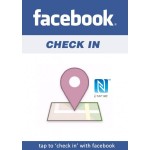Google Takeout
Until this class, I’ve never noticed the how much input I have to big data. Since there are so many ways to contribute to data, I probably still don’t realize them all on a daily basis. I mainly contribute to big data by my online shopping. It may be because I often shop online, but I am constantly being targeted by shopping sites suggestions for me. The suggestions either lead me to buying more items, or not being interested at all. For example, I was logged into my amazon account at work and a co-worker was searching for cat treats. I later got cat food and toy recommendations, in which I had no interest in. This gives a big misinterpretation of my online identity. On the other hand, I often see the same bathing suit advertisements on my Facebook page after buying one on that particular site. I do find this to be very useful for the company (when my identity is not misunderstood) because I do find myself clicking on those advertisements and shopping. With the knowledge of predictive analytics I am more aware, but it has not changed how much date I put out there.
I did not find much when looking into my data through Google takeout. The only thing that came up for images is the picture associated with my Gmail account. My Google calendar is empty, as I typically use the calendar in my phone. A lot of data came from my Google doc, but I only use that for school work, and only when required to edit group work, so there isn’t much there either. My YouTube history consisted of searches of videos that needed to be watched for class assignments. From Google takeout, companies could definitely gather that I am a student, but that’s about it.
 Next Post
Next Post
I honestly really love that your understanding of how big data and predictive analytics works hasn’t changed how much data you decide to put into the whole system. The same is true for me. I think that there’s an expectation that the more we learn about big data, the less big data we want to provide, but that’s not necessarily true. Big data is just that – it’s big. It means that yes, companies could identify you individually over time, but in all honesty, they won’t. It’s about defining and discovering trends and patterns and studying and refining those, not about stalking each individual. We shouldn’t be afraid of big data. Instead, I think we should take a moment to be excited about the possibilities it provides.
Interesting take away. Thanks for completing the Google download and analyzing that data you produce. I didn’t have much useful information that could have been used to make predictions either. I think the overall trend here is that online shopping predictions and recommendation seems to be shared by most of the students so far. Thus much of the data and information that is collected on us is probably licensed to retailers. Once we graduate and have credit cards, insurance, mortgages I am curious as to whether or not predictive analytics will affect our rates and approval. For now I would agree, there are not too many blatenly obvious predictive analytic algorithms that we encounter.